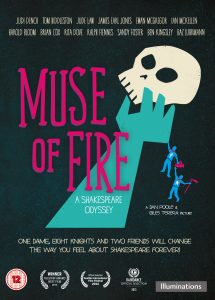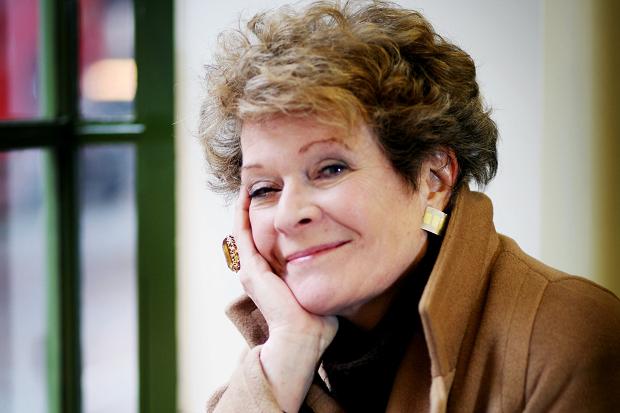CFP: Disability and Shakespearean Theatre Symposium
12th November 2015
Sir Alwyn Williams Building, Lilybank Gardens
University of Glasgow, G12 8QQ
9.45am-5pm, Wednesday 20th April 2016
Attendance: £25 full, £15 concession, free for BSA members
This symposium draws together growing research interest in disability studies and Shakespearean theatre. In discussing the depiction, treatment, and uses of disability in Shakespeare’s work (and that of his contemporaries) alongside analysis of the role of disability in staging of his plays, we hope to encourage interaction between creative practitioners, historians, and literary scholars. Playwright and disability studies scholar Prof. Chris Mounsey (University of Winchester) will give the keynote address on “VariAbility in Shakespeare”, in which he will explore alternative ways of responding to the question of the existence of disability in the Early Modern period, and to one of Shakespeare’s most infamous characters: Richard III. Following the symposium, Glasgow-based playwright Molly Ziegler (Notes, Getting it (Back)) has agreed to premier her new play, Let Her Come In. Let Her Come In is a one act rewriting of Hamlet, focused on mental illness, gender, and disability.
We are now looking for academics, actors, and creative practitioners of all levels, periods, and fields to submit proposals for 20 minute conference papers, or 5-10 minute position papers for discussion. We invite papers on topics that include (but are not limited to):
- Disability in contemporary adaptations of Shakespeare
- 21st-century understanding of (and challenges to) disability on the Shakespearean stage
- VariAbility and categorisations of disability on stage (especially as applied to mental and physical disabilities)
- Staging disability (actors, prostheses, costumes, etc.)
- Disabled actors and staging Shakespeare
- Signed Shakespeare, captioning, and assistive technologies
- Disabled scholars’ experience of Shakespeare in performance and the academy
- Cultural and historical concepts of disability in Shakespearean texts
- The language of disability in Shakespeare
- Challenging the idea of Shakespeare as savant
- Disability and Shakespeare’s collaborators and contemporaries
- Disability studies theory and Shakespearean theatre
Please email an abstract of up to 300 words and a short bio to the symposium organisers (disabilityandshakespeare@gmail.com) by Friday 15th January 2016. Please indicate if your proposal is for a position paper. There are two small travel bursaries available for postgraduate/early career presenters; the recipients of these grants will be asked to write a short reflection on the symposium, which will be published on the BSA website, the Glasgow Medical Humanities Research Centre blog, and the symposium website.
If you wish to be considered for one of the postgraduate bursaries, please email us for an application form and submit it with your abstract and bio. We will contact all respondents on the outcome of their proposal by Friday 22nd January 2016. Thanks to funding from the British Shakespeare Association, this symposium will be free to attend for BSA members. Symposium attendees are welcome to join the BSA in advance of the event or on the day.
The symposium venue, the Sir Alwyn Williams Building, is fully accessible, and the symposium will include accommodations such as pre-circulated papers and discussion topics, ending with an interactive roundtable discussion. For more information on access, transport, and the venue please visit our website. If you have any questions, please email the symposium team at disabilityandshakespeare@gmail.com, or contact us via @Disability&SS.


 Dame Janet Suzman is one of the most pioneering performers and directors of Shakespeare during the last 50 years. As an actor, she has infused her roles with powerful emotions provoking the audience into startlingly new appraisals of the play. Her achievements as a director have been extensive and had a major impact upon future productions; in particular, her path-breaking direction of the Market Theatre Othello (available on film) allowed audiences from around the globe to perceive how the play resonated with present-day politics. Moreover, Suzman has used her skills as both actor and director to produce books, such as Acting with Shakespeare and Not Hamlet, that have inspired a generation of scholars, directors, actors, teachers and students.
Dame Janet Suzman is one of the most pioneering performers and directors of Shakespeare during the last 50 years. As an actor, she has infused her roles with powerful emotions provoking the audience into startlingly new appraisals of the play. Her achievements as a director have been extensive and had a major impact upon future productions; in particular, her path-breaking direction of the Market Theatre Othello (available on film) allowed audiences from around the globe to perceive how the play resonated with present-day politics. Moreover, Suzman has used her skills as both actor and director to produce books, such as Acting with Shakespeare and Not Hamlet, that have inspired a generation of scholars, directors, actors, teachers and students. Chris Grace has made Shakespeare live for young people. In 2000 he founded the Shakespeare Schools Festival, which is the largest youth drama festival in the UK and offers the opportunity for young people of all abilities and from all backgrounds to engage with Shakespeare. In addition, as Director of Animation at S4C, he created the hugely influential Shakespeare – The Animated Tales, ensuring that generations of children, inside and outside school, had their interest in Shakespeare sparked by the beauty and imagination of these pioneering broadcasts. Indeed, it remains the most popular programme on BBC Education. Above all, Grace’s work has been instrumental in inspiring, and continuing to inspire, teachers and young people.
Chris Grace has made Shakespeare live for young people. In 2000 he founded the Shakespeare Schools Festival, which is the largest youth drama festival in the UK and offers the opportunity for young people of all abilities and from all backgrounds to engage with Shakespeare. In addition, as Director of Animation at S4C, he created the hugely influential Shakespeare – The Animated Tales, ensuring that generations of children, inside and outside school, had their interest in Shakespeare sparked by the beauty and imagination of these pioneering broadcasts. Indeed, it remains the most popular programme on BBC Education. Above all, Grace’s work has been instrumental in inspiring, and continuing to inspire, teachers and young people.